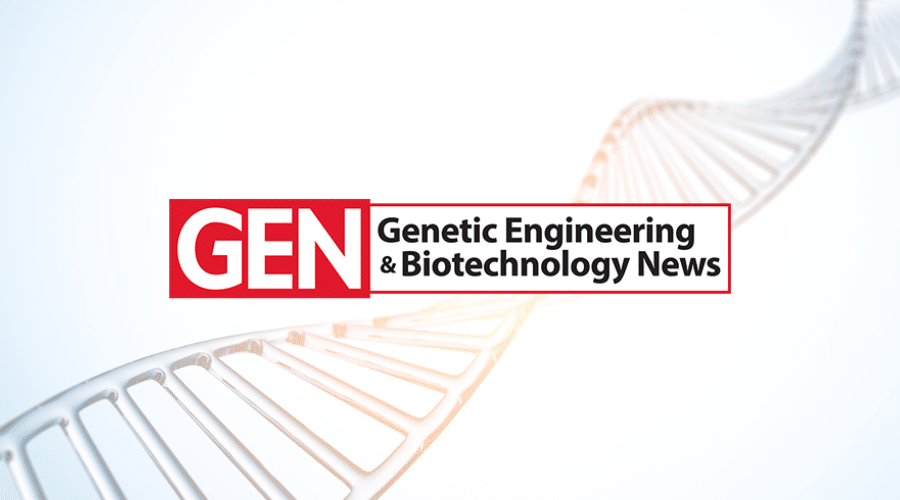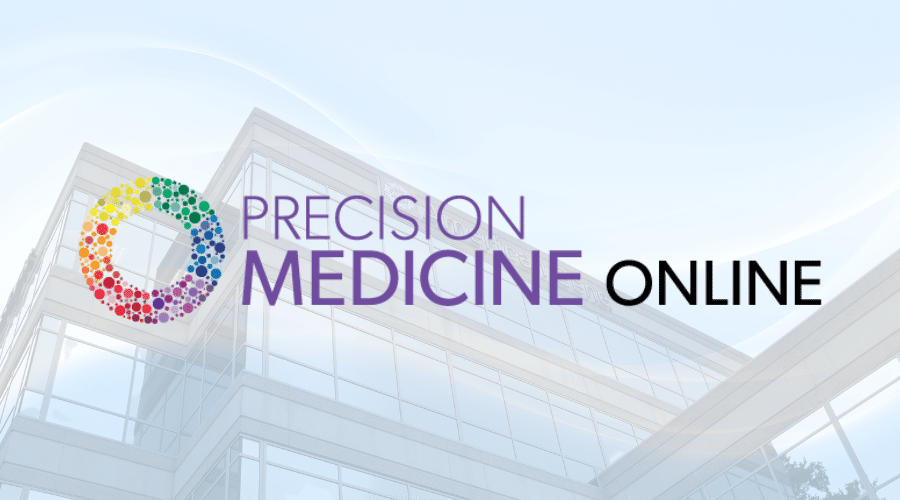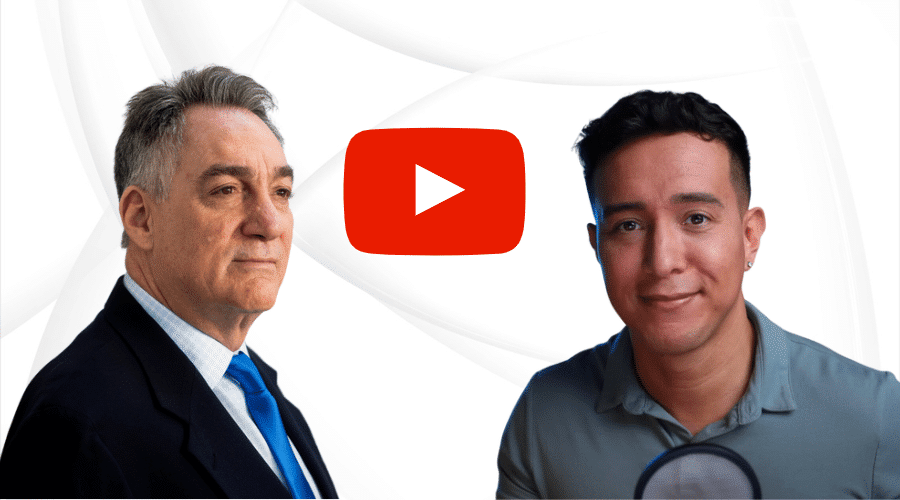Authority Magazine: Gene Therapy: “Jeff Galvin’s Big Idea That Might Change The World”

Original Post on medium.com
Don’t mistake “wants” for “needs” in your life. We hardly need anything to survive, and if we don’t get caught up on the materialistic world that media, corporations, and politicians sell us in order to perpetuate their agendas, it leaves us free to pursue our passions. Passion is the “secret sauce” to many big achievements. Brains, hard work, and passion can allow us to achieve something great. A team of smart, hard-working, passionate people can change the world.
Thank you so much for doing this with us! Before we dig in, our readers would like to get to know you a bit. Can you please tell us a story about what brought you to this specific career path?
I have a long history in technology, having become fascinated by computers in the seventh grade in the early 1970s. I loved the idea that technology could make life better, and computers were my first exposure to a new industry that would ultimately touch everyone’s lives, improving efficiency and productivity, and eliminating many of the most mind-numbing tasks that humans performed daily. I had a 30-year career in computers, software, IT, internet, and apps, including teaching at MIT as a high-school student on weekends, and later as an undergraduate at Harvard. Teaching allowed me to share my excitement for the usefulness of computer technology and prepared me for success at Apple and a series of startup companies in Silicon Valley that eventually allowed me to retire in 2001 (just before 9/11). The timing was good. I was only 42, and the drop in the economy allowed me to stretch my “mad money” to purchase a house in Hawaii, where I lived across the street from one of the best beaches in Maui and walking distance to downtown Kihei. It was an amazing break from all my hard work and long hours since high school. But long term, paradise was not enough stimulation for my brain and creativity at that age. I longed to get back into the business.
I had money to invest, so I ended up seeing a lot of business plans, one of which was from a lab at the National Institutes of Health (NIH) where I learned about “viral vectors” from an accomplished drug-developer and physician, Roscoe Brady, in early 2007. Viral vectors were a relatively new technology that allowed scientists to “repurpose” viruses from delivering “bad” genetic elements that cause disease, into delivery vehicles that can bring “good” genetic elements into the body that fight disease. These elements were genetic sequences of something called “nucleotides” that are symbolized by A, C, T, and G, and make up all the genes that control everything in our bodies. A, C, T, G reminded me of the 0’s and 1’s that control everything in the computers of my previous career, and I realized how many parallels the human cell had to a computer. Genetics were just like software. It was an epiphany.
DNA was an operating system, which sometimes came with “mistakes” in the software called inherited disorders. DNA also had benefits: commands in the “software’ that gave resistance to diseases. Viruses could now be converted into “updates” that could repair the cell’s operating system or even improve it! I saw the incredible power of being able to address the function of every detail of the human body at the root drivers of everything: DNA! That original vision turned out to be right, and now the power and breadth of this new technology is generally accepted, as cures to formerly incurable or untreatable diseases are being approved. For example, cures for blindness (Leber’s congenital amaurosis), some incurable cancers, spinal muscular atrophy (SMA), server combined immuno-deficiency (SCID), are being developed by a growing industry of gene and cell therapy companies.
Every part of my career has been interesting: Wandering around MIT in junior middle school learning about robotics and sensor technologies, and finding free computers to use back in the 1970s when they were rare and expensive. Traveling around the world for Apple when I worked as product marketing manager, educating distributors, Apple offices, and consumers about the revolutionary new “graphical user interface” (GUI) that we believed would help bring computers to everyone. (And it did, even though the established computer industry and all the experts told us it wasn’t important. Can you imagine your smartphone without a “point and click” user interface where you had to type commands?) My passion continued right up through last night, when I had dinner with a team of AGT colleagues that may eventually cure HIV, as we celebrated the third patient in our clinical trial receiving therapy without any signs of safety issues!
Jeff Galvin is the CEO and founder of American Gene Technologies®. He earned his BA degree in economics from Harvard in 1981 and has more than 30 years of business and entrepreneurial experience, including founder or executive positions at a variety of Silicon Valley startups. Several of his companies were taken public and/or sold to public companies, including one in the medical-technology arena that was sold to Varian, the leading maker of linear accelerators used in cancer therapy. Following his startup experience, he retired to become an angel investor in real estate and high tech. He came out of retirement to found and fund AGT™ after meeting Roscoe Brady, MD, PhD, at the National Institutes of Health in 2007.
As a part of my series about “Big Ideas That Might Change The World In The Next Few Years” I had the pleasure of interviewing… Jeff Galvin the CEO and founder of American Gene Technologies®.
Keeping “Black Mirror” and the “Law of Unintended Consequences” in mind, can you see any potential drawbacks about this idea that people should think more deeply about?
Every powerful new technology is a two-edged sword. The discovery of radioactivity led to nuclear technology, that at its best can heat and cool millions of people in cities and towns, but at its worst can destroy whole cities with its misuse. Our new abilities to create viruses that modify DNA will have good and bad uses, too. This technology could ultimately be weaponized, and it may be misused to the detriment of humanity as well. It is my hope that society and humankind will continue to mature and refrain from our worst instincts so that most uses will be good.
There is another obvious unintended consequence that will have policy implications within society. Especially in the early days (the first several decades), this technology will be relatively expensive, and it will also yield life-extending, life-improving treatments that may increase lifespans (for those who can afford it) by 100 years. It may also allow us to select the qualities and attributes of our children (see the 1997 movie Gattaca). This is another potential chasm between the “haves and the have-nots” that we will inevitably need to deal with. Fortunately, I think this is decades away, so we have some time to think about it.
Was there a “tipping point” that led you to this idea? Can you tell us that story?
When I decided to “enhance” my retirement with some business activity to keep my mind stimulated and continue to fuel my creativity, one of the ideas I floated was investing in startup companies. It was a business plan from a lab in NIH that led me to meet Roscoe Brady and learn about the cutting-edge technology of viral vectors and gene therapies. My “epiphany” about the future that science would bring gave me a vision for the future that I fell in love with. That love gave me the energy to come out of retirement and jump in with both feet, risking my retirement by investing nearly everything I had and motivating me to work 24/7 to get to the better world I imagined for all of us.
What do you need to lead this idea to widespread adoption?
This revolution is inevitable. It is good, and the more awareness amongst the ultimate beneficiaries (all of humankind), the faster the revolution will come.
What are your “5 Things I Wish Someone Told Me Before I Started” and why. (Please share a story or example for each.)
- People that are “good” and helpful look just like people that are “bad” and selfish. Trust but verify. Anything good attracts sociopaths. One self-serving, narcissistic, con artist can destroy or rob the productivity and accomplishments of a team of hundreds.
- A good attitude can be more important than experience. Smart, motivated, passionate people can do almost anything. Anything new (like gene and cell therapy) has never been done before, so attitude, flexibility, perseverance, ability to learn, commitment, and even love for each other is what allows teams of people to achieve innovations and breakthroughs.
- The team is the “thing.” Even an individual athlete has a team of people around them to train and refine them so they can achieve the “gold.” Almost nothing of significant impact is done alone these days. Pick your team wisely.
- Mutual respect, appreciation, and gratitude is critical for a good team. There are no small jobs. Everything is critical. Success is not doing one thing right; it is getting everything right. Even the janitors at AGT have stock in our company. We don’t take anyone for granted.
- Don’t mistake “wants” for “needs” in your life. We hardly need anything to survive, and if we don’t get caught up on the materialistic world that media, corporations, and politicians sell us in order to perpetuate their agendas, it leaves us free to pursue our passions. Passion is the “secret sauce” to many big achievements. Brains, hard work, and passion can allow us to achieve something great. A team of smart, hard-working, passionate people can change the world.
Can you share with our readers what you think are the most important “success habits” or “success mindsets”?
Train your mind how to learn, but don’t get caught up on “what” to learn (particular subjects or information). A powerful mind comes from exercising every part of it, and one subject is like a dumbbell, it can only strengthen a limited set of “brain muscles” or skills. Life is an intellectual decathlon, and the challenges (the games) in it are constantly changing. Time is on your side if you are curious and motivated to stimulate every aspect of your most important tool to survive and thrive. Never stop learning! The world is constantly changing, so you must always be aware to determine, and intellectually flexible to quickly adapt to, the ever-changing parameters of life (the games). If you can reorient your thinking and learn new things quickly, you will be able to choose and influence your environment to benefit yourself and others. Even Arnold Schwarzenegger famously said that the brain is the most important muscle. He was right!
Some very well known VCs read this column. If you had 60 seconds to make a pitch to a VC, what would you say? He or she might just see this if we tag them 🙂
AGT is the “Microsoft” of the “software” revolution for the next 100 years (new genetic components to improve health) with the “Apple” attitude. We have developed a platform of reusable components that can be mixed and matched to form the foundation of thousands of new treatments and cures for previously un-addressable health conditions. We are in the middle of a clinical trial for an HIV cure that has a good chance of success, but that will just be the tip of the iceberg. Over the last 13 years, we have created the “MS-DOS” for the organic computer (the human cell), and we have built the corporate culture of an “Apple” with vision, mission, a team of top scientists and professionals, creativity and passion. Now that you know about us, you have two possible futures: invest, or kick yourself later. 😉
How can our readers follow you on social media?
Thank you so much for joining us. This was very inspirational.





